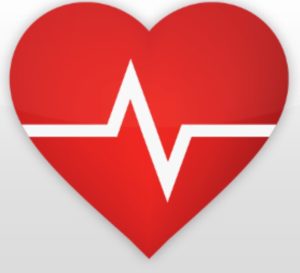Recently on the blog, we spent some time explaining the science of blood clots: what they are, why they form, and what they can do to your health. Today, we will provide some more helpful information: this is how you can tell if you’re developing a blood clot! But first, let's help you prevent clots from forming in the first place.
Before highlighting the blood clot warning signs, here's some good news: there are easy ways to reduce your risk for them! In fact, one of the simplest ways to prevent clots in the deep veins of your legs (DVT, or deep vein thrombosis) is to move more.
Yep, that's all it takes. Exercise, especially walking, can improve blood flow in your legs, helping prevent pooling, and clots. (That's why we feature regular workout suggestions on our Move it Monday series!) Of course, even with careful lifestyle measures, you may still develop a clot. And because timely treatment is critical, we want you to identify the problem as soon as possible!

There's a scary answer to this question. You can’t always tell when you’re developing a blood clot. Sometimes, they form without any obvious symptoms. But sometimes, a blood clot forms and impacts your body in a number of ways. Many of those symptoms will depend on the location of your blood clot.
As it turns out, women have a higher clotting risk.
If you have DVT (deep vein thrombosis, a clot in the deep veins of your legs), you may develop blood clot symptoms, including:
Sometimes, the redness could look streaky and move down your leg.
If the clot forms in your lower leg, cramping could be a warning sign. With a DVT, that swelling (called edema) could look a little different than other forms of fluid buildup. Because if a clot is to blame, you’ll notice pits or depressions in the swollen area that stick around for a few seconds after you press on the skin.
[RB1]Link instead to https://texaseva.com/vein-disease/deep-vein-thrombosis-dvt/
Many different factors can cause your blood to clot abnormally. If you're pregnant, have recently had surgery, or are a smoker, you'll be at a higher risk for clotting. On its own, a blood clot is a serious medical concern. But, if the clot breaks free and starts to travel through your blood stream, it becomes a medical emergency.
A clot break is a serious medical complication. This can happen when a DVT breaks loose from your legs and travels to your lungs (known as a Pulmonary embolism). A clot break could also travel from your heart to your brain, causing a potentially fatal complication.
With a clot break, you may experience shortness of breath (for no apparent reason), an unexplained cough, chest pain, an increased heart rate, and fatigue. Your breath may also come quickly, and you may notice pain in your rib cage, especially when you breathe deeply.
If the clot travels to your brain, the symptoms include loss of strength in your arms and legs, slurred speech, and sudden death.
If you’re at increased risk (you’ve just taken a long plane trip, you’re pregnant, or have compromised cardiovascular health) see your doctor for any of these symptoms. A blood clot can quickly become a medical emergency.
In theory, your blood clot will resolve itself. That means your body will naturally break it down and absorb the clot—eventually. But that process could take weeks or even months. And depending on the location of your clot, waiting that long could pose a major threat to your health.
Why? If you have a clot in your artery, your cells won’t get the oxygen-rich blood they need to work, so they’ll stop functioning. If the clot cuts off oxygen to your brain cells, you’ll develop stroke symptoms. If the clot is in your coronary artery (impacting your heart), you’ll start developing heart attack symptoms.
So clearly, arterial clots are medical emergencies. But clots in your veins, like DVTS, are also serious. And that’s because they cause their own set of symptoms, but also because of their potential to break free and travel to your lungs.
In other words, while you could wait for your body to heal that clot, doing so could be a fatal mistake. Instead, let’s explore the best way to treat your blood clot medically.
Even if it means a trip to the emergency room, see a doctor at the first sign of a clot. If you do have a clot, you’ll need one of two treatments: medication or interventions involving medical devices.
Oral or intravenous (IV) blood thinners can help manage a blood clot. Alternatively, your doctor may insert a wire or catheter to try and open up your blood vessels. Finally, in certain situations, your healthcare provider may surgically remove the blood clot (thrombectomy.)
The good news is that blood clot treatments are fairly effective, especially if administered quickly. But to benefit from these treatments, you must be seen before the clot grows or causes additional damage like a heart attack or stroke.
For that reason, we can’t emphasize this enough: seek immediate medical attention from your Houston vein specialists at the first sign of a suspected blood clot!

Scheduling
Please contact our dedicated specialists to schedule a consultation today.
2025 Texas Endovascular. All rights reserved. Website Design by Healthcare Success